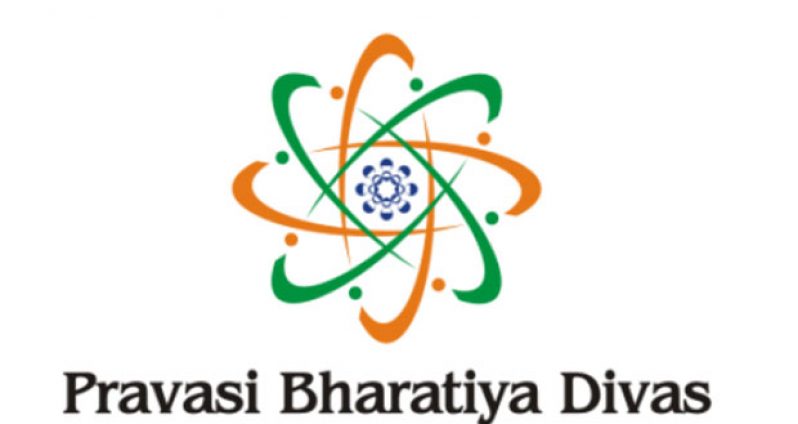BY Dr. PREM MISIR
Part 1
First published: themisirpost.wordpress.com
Introduction
The Pravasi Bharatiya Divas (PBD) symbolizes a perpetual cultural continuity and bonding of overseas Indians to their Indian cultural heritage; many overseas Indians, that is, Indians from the Indian Diaspora at the PBD are largely professionals whose migration to the Western metropolis has no parallel with that of the early indentureds of the 19th and early 20th centuries. Early indentureds inhabited a dehumanized total institutional environment, with no mobility, enslaved by the tyranny of the rule of law, and reduced to a history of humiliation.
J.C. Sharma demonstrated the striking difference of the early Caribbean indentureds, thus (Sharma, 2002): “These settlers to the Caribbean had usually carried with them on their way only their pots and pans, a few pieces of clothing, and perhaps a blanket. Yet, they managed to bequeath to their children and their grand-children the cultural heritage of their land of origin.” And it is the early indentureds’ cultural legacy that today has concretized the pillars of the PBD, the annual forum that forges the mutual link between overseas Indians and India. How did the PBD become a reality?
The Government of India under the then Prime Minister Atal Bihari Vajpayee in 2000 appointed the High Level Committee on the Indian Diaspora; its terms of reference (MEA, 2000, p.iii) were to: assess the status of Persons of Indian Origin (PIOs) and Non-Resident Indians (NRIs) in relation to the constitutional provisions, laws and rules related to India and the countries where they reside; develop a holistic understanding of PIOs and NRIs and what they expect from India; review possible roles of PIOs and NRIs to develop India; study the immigration rules applicable to PIOs’ visits to India and their investments, and the concerns of NRIs; and recommend a policy framework to forge a mutually beneficial relationship between PIOs, NRIs and India.
This Committee under the Chairmanship of Dr. L.M. Singhvi, a Member of Parliament and a former High Commissioner of India to the UK made several recommendations, among which included the hosting of the annual PBD and conferral of the Pravasi Samman Awards to both PIOs and NRIs (MEA, 2001b, p.377).
Each year since 2003, January 9 is the day set aside to celebrate PBD, as it was on this day that Mahatma Gandhi returned to India from South Africa. I have a keen interest in promoting the mission, vision, and philosophy of the PBD, as evidenced through my paper presentations at several PBDs: “Leveraging knowledge networks” at the 8th PBD in New Delhi (2010); “Defining Indian Diaspora” at the 7th PBD in Chennai (2009); “Defining the Diaspora agenda: the Caribbean” at the 4th PBD in Hyderabad (2006); and in ‘Plenary session IV: India & Generation Next’, “Toward national unity in multicultural societies” at the 3rd PBD in Mumbai (2005), and the Journal of Indo Caribbean Research has now published this paper.
The PBD addresses two types of people: Persons of Indian Origin (PIOs) and Non-Resident Indians (NRIs); PIOs are foreign citizens of Indian origin or descent and NRIs are Indian citizens living overseas for an indefinite period. The Indian Diaspora includes both PIOs and NRIs, comprising about 25 million Indians scattered over 110 countries.
This Diaspora represents about 1.7% of India’s population, and according to Parekh, only about 3.5 million of the 25 million Indian Diasporans are settled or rich (Parekh, 2003). But Parekh argues that the Indian Diaspora is not new (Parekh, 2003); Indians have been abroad, back and forth numerous times for hundreds of years; Indians have been settling overseas over the last 2,300 years, when commencing in the post-Buddha period, Indian missionaries traveled to Sri Lanka and Afghanistan.
But for the first time in Indian history, India has provided a PBD in India itself as a ‘bonding’ meeting place for its overseas kinfolks. Every member at PBD Conferences comes to solidify this bonding with India and hopefully India would want a bonding with its Diaspora; a bonding that requires reciprocity and a political will.
Former Prime Minister Atal Bihari Vajpayee made the following statement in 1977 when he was the Minister of External Affairs (MEA, 2001a, p.v): “The subject of overseas Indians is one which is very dear to our hearts. Everyone of Indian origin overseas is a representative of India and retains many aspects of our cultural traditions and civilization. Though our sons and daughters have gone abroad to work or to reside there, India will never disown them or fail to appreciate and respect their essential loyalty to the culture and heritage of the mother country.”
Indeed, there is a growing need to have a working relationship of overseas Indians with India, amid a fiercely brutal economic globalization process, working to the disadvantage of poor developing economies. A sustained relationship requires an application of the principle of reciprocity, making both parties stakeholders. Both parties would need to have a mutual understanding of what is happening in India, on the one hand, and what is happening in overseas territories, on the other hand. Vajpayee’s commitment to overseas Indians is encouraging, as each overseas Indian takes a piece of India in the new abode.
References (for Parts 1 and 2)
LEDERMAN, D., OLARREAGA, M. & SOLOAGA, I. 2007. The Growth of China and India in World Trade: Opportunity or Threat for Latin America and the Caribbean?
MEA. 2000. Order [Online]. Ministry of External Affairs. Available: http://www.indiandiaspora.nic.in/diasporapdf/part1-ord.pdf [Accessed January 3, 2015.
MEA. 2001a. Available: http://www.indiandiaspora.nic.in/diasporapdf/part1-for.pdf [Accessed January 3, 2015.
MEA. 2001b. The Indian Diaspora [Online]. Available: http://www.indiandiaspora.nic.in/diasporapdf/chapter25.pdf [Accessed January 3, 2015.
NAIPAUL, V. S. 1976. INDIA-WOUNDED CIVILIZATION. 1. NEW YORK REVIEW OF BOOKS, 23, 18-&.
PAREKH, B. 2003. Why the Diaspora needs India [Online]. Available: http://www.rediff.com/news/2003/jan/08spec1.htm [Accessed January 3, 2015.
SHARMA, J. C. 2002. Indian Diaspora
Inaugural Address [Online]. Available: http://ngu.ac.in/center/dias/index.htm [Accessed January 3, 2015.
WEI, Y. & BALASUBRAMANYAM, V. N. 2006. Diaspora and development. The World Economy, 29, 1599-1609.





.jpg)








